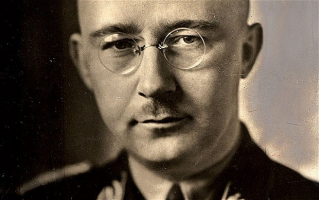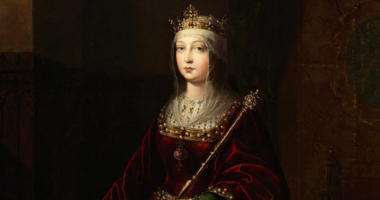Top 8 Interesting Facts About Johnny Cash
There are many interesting facts about Johnny Cash that you may not know. He was a greater-than-life figure during his lifetime, whose legend has continued to ... read more...grow after his death and whose name has become synonymous with country music.
-
Sam Phillips, Cash's first record producer, assumed that Cash made up his last name when they first met. It has a "Johnny Guitar" or "Johnny Dollar" sound. In truth, the surname Cash originates from Scotland's old kingdom of Fife and may be traced back approximately a thousand years. That "Johnny" is made up.
According to the legend, Cash's parents struggled to decide on a name for their fourth child. His father's name is Ray, and he worked hard for it; his mother's maiden name was Rivers, and she was concerned about it. A shorthand for avoiding confrontations is "JR." Cash was known throughout his youth by the initials JR, which was not uncommon for Southern children to have during the Depression. Even after earning his high school diploma, he continues to go by JR; his name is on the document.
Cash didn't have to establish himself until he enlisted in the Air Force in 1950. JR becomes "John R. Cash" because employers won't accept candidates whose names include initials. His second name is still a point of contention among historians today because the R might refer to either Cash's mother Rivers or father Ray.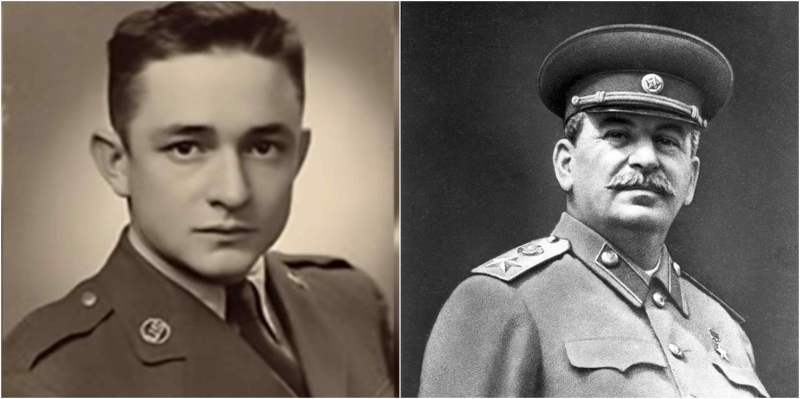
Photo: https://cdn.guff.com/ 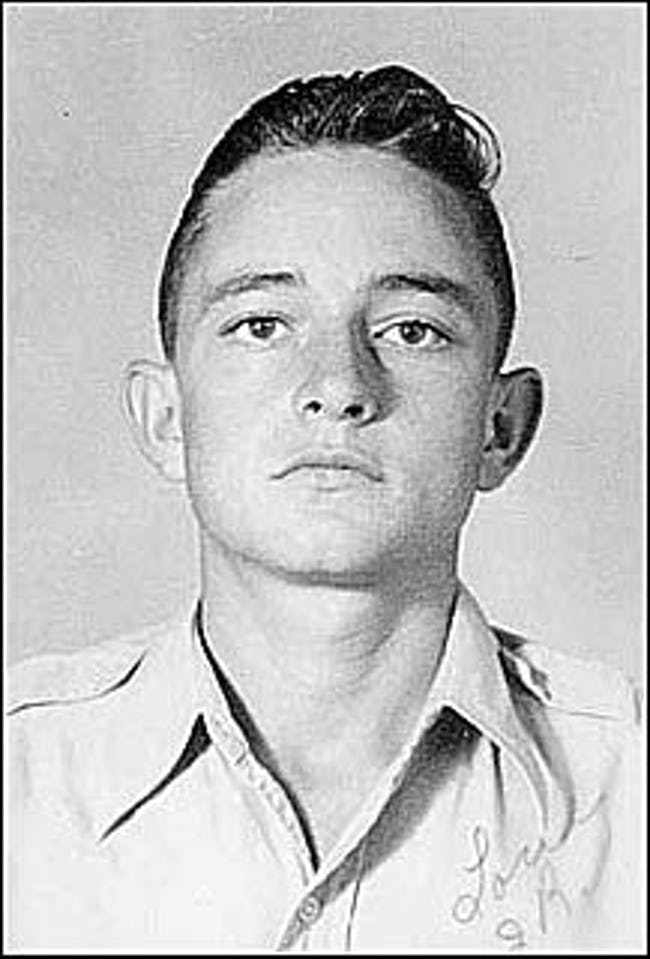
Photo: https://cdn.guff.com/ -
One of the interesting facts about Johnny Cash is that he started his music career with a $5 guitar. Germany was divided into East Germany and West Germany immediately following World War II. While West Germany was governed by the United States, France, and Great Britain, East Germany was ruled by Russia. Johnny Cash was sent to West Germany to maintain a significant military presence after enlisting in the Air Force.
Despite his apparent aptitude and love for music, Cash didn't start writing songs seriously until he joined the Air Force and was transferred to the Air Force Virtue. He spent the same cash he won at that talent contest years ago on his guitar, which he purchased in Berammergau. Soon he was playing in a ragged band called Landsberg Barbarians with a group of like-minded troops. Along with penning lyrics, he began writing music, including a draft of "Folsom Prison Blues," his first significant hit. Cash discovered his way and went after it, even though he would make a feeble attempt to land a "legitimate" job after his service in 1954, largely to support his new wife and kids because then.
He joined a ragtag band even though he was still a beginner in order to rekindle his passion for music. Later, after playing in a modest band, he developed enough to join a well-known band that rocked the nation.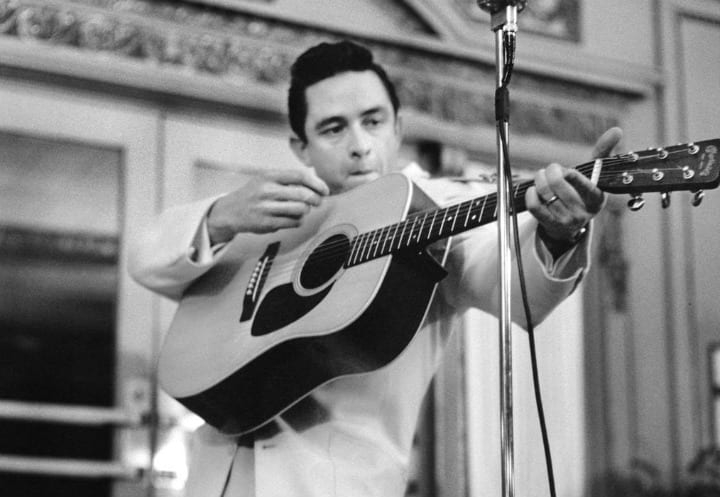
Photo: https://cdn.directexpose.com/ 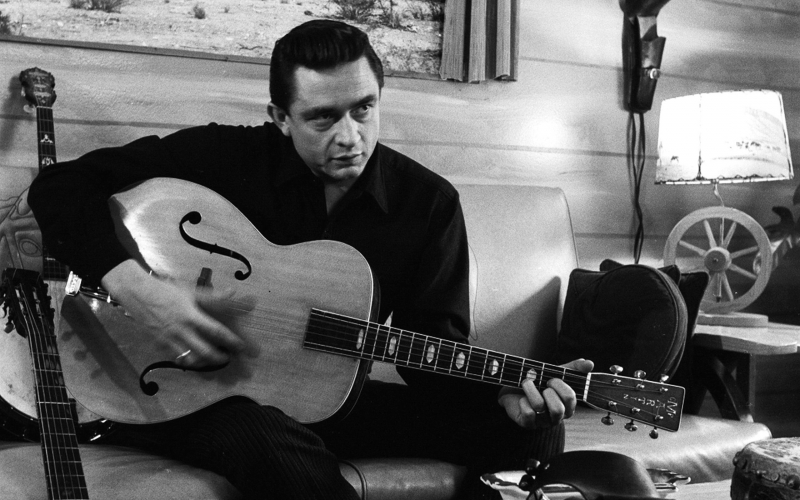
Photo: https://www.provokr.com/ -
More than just a musician, Cash. Simply put, he is a writer. As a young child, he created drawings and poetry; as a teenager, he created stories; and even after enlisting in the Air Force, he kept writing. While he was serving in the Air Force, his first piece of published writing, titled "Hey Porter," was published in the military publication Stars and Stripes (a title later that was recycled for one of his first hits). Year after year, he penned letters to his loved ones, friends, and even to himself. Additionally, he wrote two autobiographies Cash: The Autobiography (1997) and Man in Black (1975), both of which he wrote longhand on lined notebook paper.
Many people are unaware of Cash's ability to write novels. He wrote the fictional six-year biography of the apostle Paul, including his conversion on the road to Damascus, and published Man in White in 1986. The book is a result of Cash's early 1980s interest in Bible study, which grew as a result of his relapse into his 1960s-era prescription drug addiction.
It is not difficult to draw comparisons between Cash, a blind man who was miraculously restored from blindness by "a man clothed in the white shirt," and Paul, a Pharisee who came to Christ by a spectacular conversion from blindness. The book was moderately successful and had generally favorable reviews, mostly from religious journals, but more importantly, Cash was proud of it and regarded it as one of his greatest achievements.
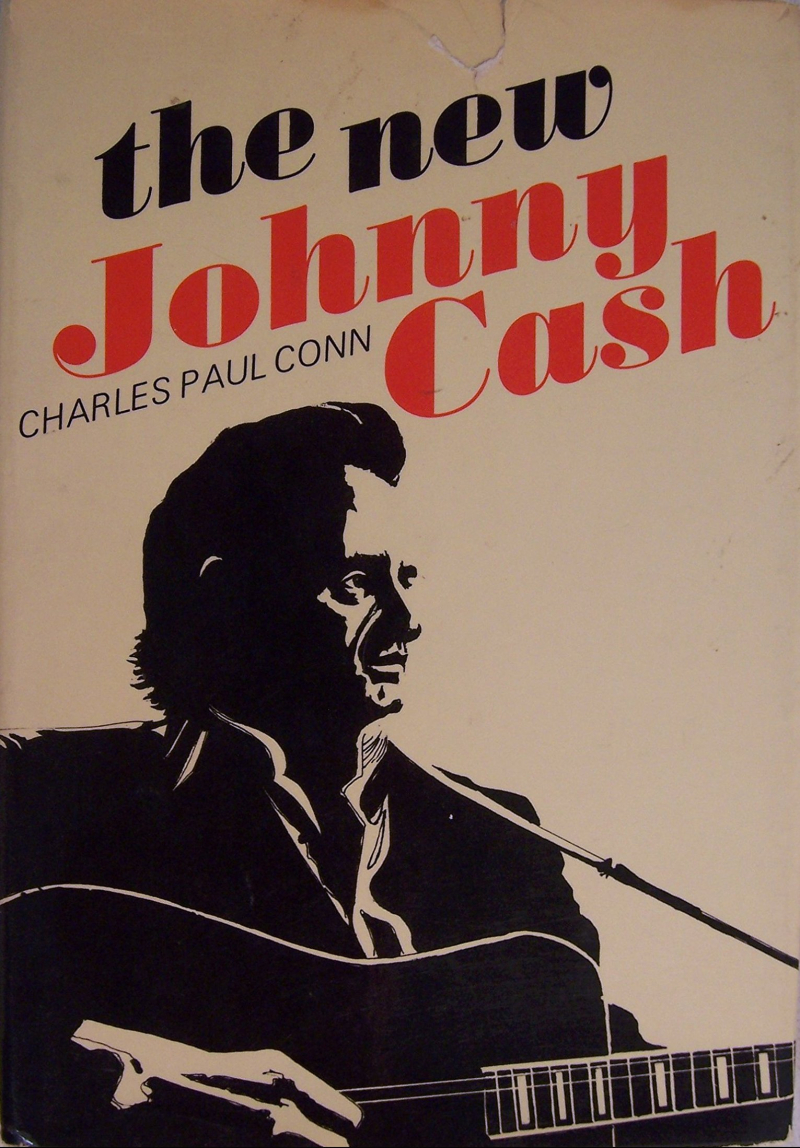
Photo: https://cdn.smehost.net/ 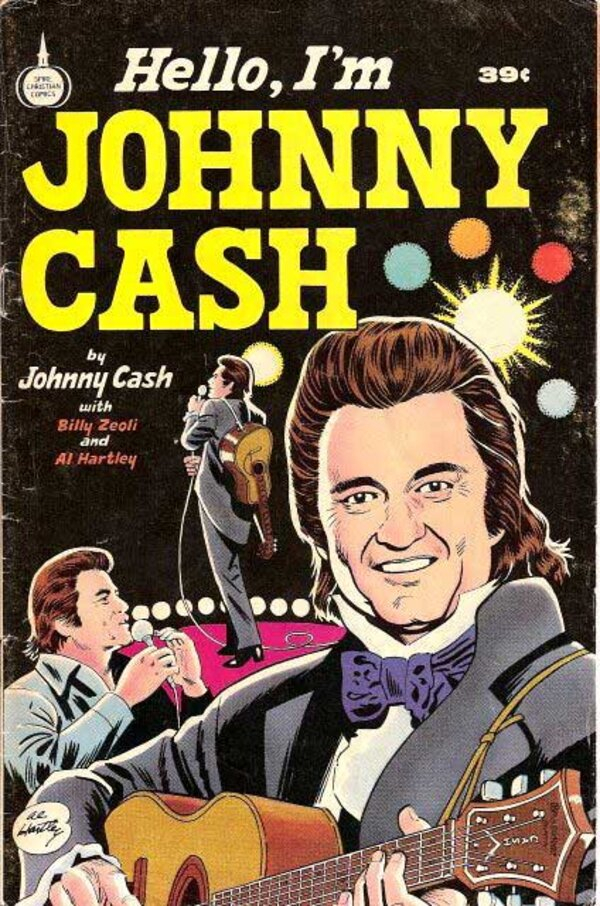
Photo: http://2.bp.blogspot.com/ -
One of the interesting facts about Johnny Cash is that he has been arrested several times for drug trafficking. His performance suffered as his addiction got worse. A bizarre fact about Johnny Cash is that he took narcotics to recharge even while performing, and he even broke instruments live on stage. Johnny Cash turned to smuggle inexpensive drugs across the border when his supply of drugs ran out.
His most well-known arrest might have been in El Paso, Texas, in October 1965. To purchase inexpensive amphetamines, to which Cash developed an addiction in the early 1960s, Cash crossed the border into Juarez. According to the news, he was discovered with 475 Equanil tablets and 668 Dexadrine tablets in his luggage. He was given a suspended sentence and had to pay a little fine, but Cash's conservative audience found it unappealing since it appeared edgy in modern eyes.
Cash was detained for public intoxication, reckless driving, drug possession, and, most notably, flower plucking between 1959 and 1968. At two in the morning, Cash decided to go pick some flowers in someone's yard as he was exploring the little town of Starkville, Mississippi. He was not a contrite inmate in the Starkville Jail after being arrested by neighborhood police; instead, he yelled and violently kicked the cell door till he shattered his toe.
He would go across Mexico at night to carry enormous amounts of drugs back into the United States. Johnny Cash was frequently found in possession of illegal narcotics and imprisoned for misdemeanors. Johnny Cash's first marriage ended in divorce as a result of his severe addiction, taking his four young girls with her.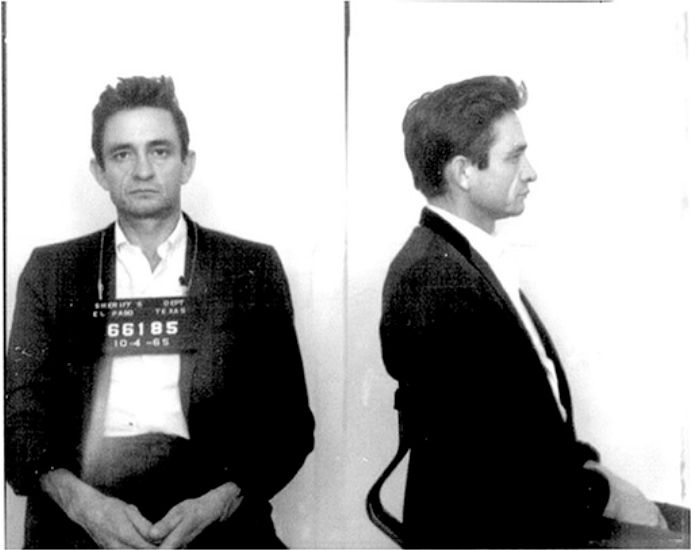
Photo: https://eaf7c6e6-a-62cb3a1a-s-sites.googlegroups.com/ 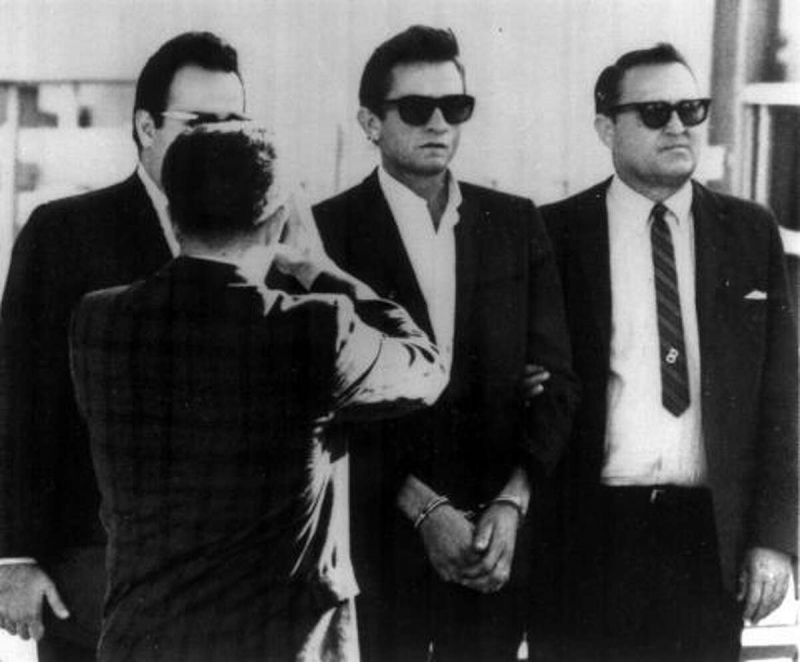
Photo: https://s.hdnux.com/ -
An interesting fact about Johnny Cash that must be mentioned is that he performed in prison to gain popularity. Johnny Cash's popularity practically fell through the floor as a result of his drug use, and all but one invitation to a public or private concert was rescinded. Before performing live, Johnny Cash played several shows as a small band. Additionally, he was able to interview some prisoners thanks to his jail concerts.
Johnny Cash at Folsom Prison in 1968 and Johnny Cash at San Quentin in 1969 are two of Cash's best-known and best-selling live recordings. He performed in jails throughout his career, empathizing with the situation of prisoners who had run away from society.
At a jail concert, Johnny Cash unveiled his brand-new tunes, and he instantly shot to fame. Additionally, he was able to compile an album of music with exclusive recordings of prison performances. His name has become a legend among contemporary pop musicians after his prison songs debuted at number one on the pop song list ten times in a row.
Johnny Cash may have been all too familiar with prison life. He thus wrote a song about the event, which later rose to the top of his album At San Quentin.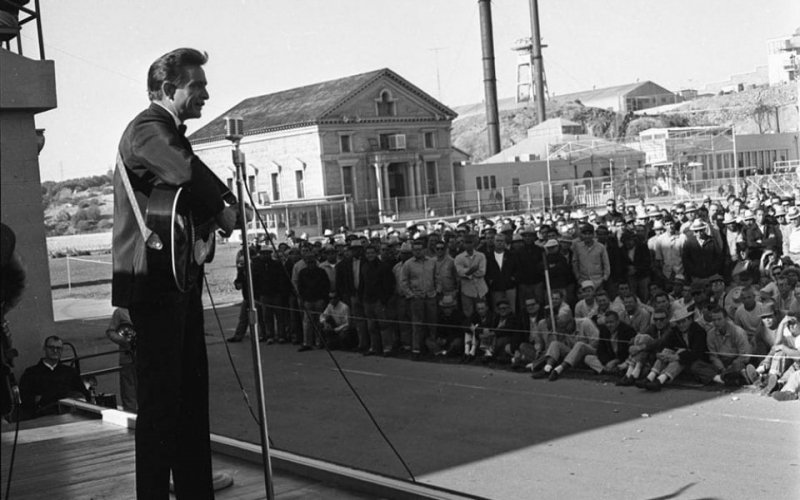
Photo: https://www.library.ucdavis.edu/ 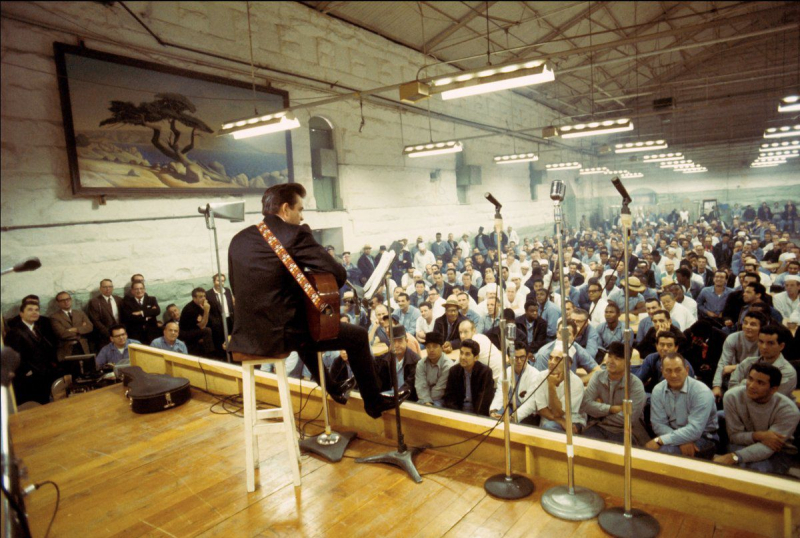
Photo: https://www.nydailynews.com/ -
Late in his career, Cash relocated to California. He had the idea of entering the movie industry because his friend Elvis Presley had done it, and he was a successful singer at the time. Although this area of his career has never been very successful, Cash has made numerous film and television appearances over the course of his lifetime.
In 1959, he made his debut in the well-liked TV show The Rebel about the Civil War. Two years later, he made his debut in the low-budget crime movie Five Minutes to Live as Johnny Cabot, a thief holding the wife of the bank president hostage (future TV star and director Ron Howard also appears in the film). The movie wasn't a hit, and Cash's star turn for several years consisted of singing or creating the theme song until he played alongside Kirk Douglas in A Gunfight, a Dark West in 1971, which depicts the tale of two elderly gunmen who sell tickets for a duel that could result in their deaths.
But the movie that meant the most to Cash was The Gospel Path: The Story of Jesus, which he personally funded and made in 1973. Cash and his crew shot the life of Jesus in Israel because they have a love for the Holy Land. Cash views this as his best cinematic accomplishment despite the film's modest success, with prints largely being screened to church groups.
Cash appeared in various television series and made guest appearances on shows like Columbo and Little House on the Prairie during the 1970s and 1980s, although he did so purely for amusement purposes and no longer nurtures the dream of becoming a movie star. The Johnny Cash Show, a variety program that aired on ABC from 1969 to 1971 and included musicians including Bob Dylan, Kris Kristofferson, and Joni Mitchell, was his most notable television accomplishment. Cash's program introduced country music to the general public for the first time, along with Glen Campbell's comparable program from around the same period.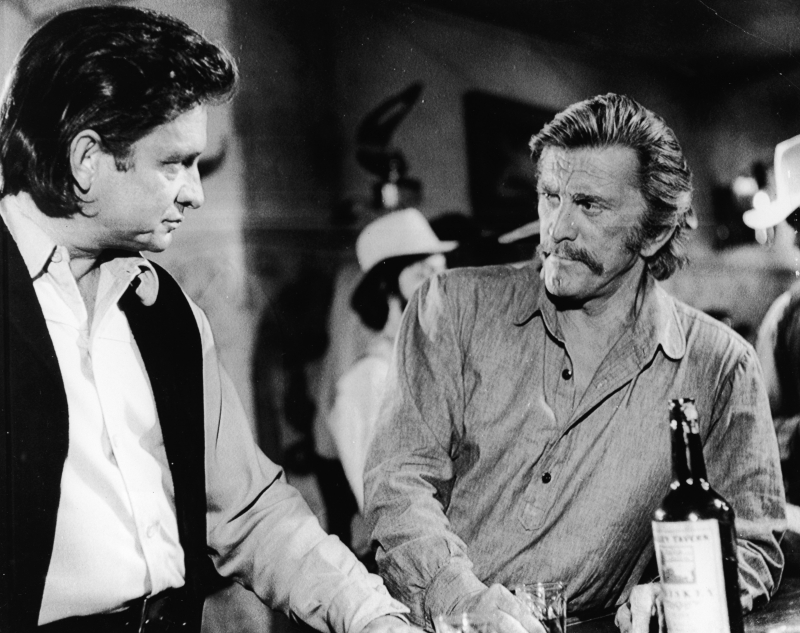
Photo: https://cdn.history.com/ 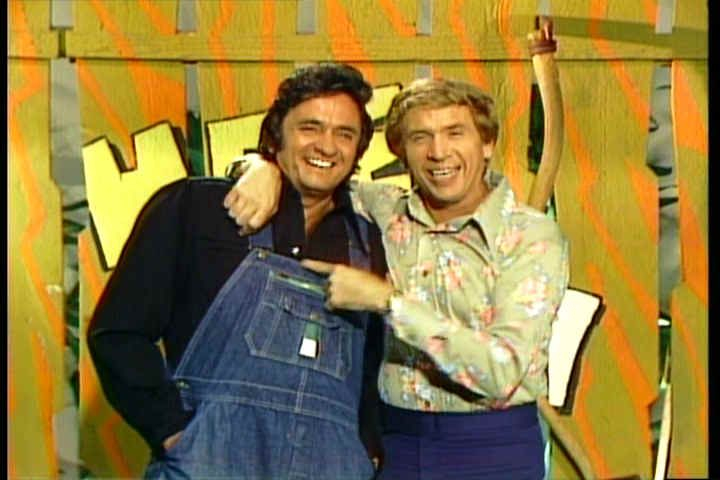
Photo: https://i.pinimg.com/ -
One of the interesting facts about Johnny Cash is that he doesn't always wear black. However, he did record a song called "Man in Black" that details his philosophical justification for donning full black (basically, until everyone is treated fairly and injustices are made). Cash didn't always wear black, and he didn't always wear black in his daily life (the work is resolved).
Cash's first appearance on stage was in all black because he and the Tennessee Two, his backup band, wanted to match, and the only thing they had in common was a black shirt. There is no absolute rule, but early pictures of the group show them in lighter colors. When presenting and being photographed, Cash frequently sports a white shirt and sports jacket. He even occasionally dons a full white outfit. On the album covers, he is seen wearing stripes, a lot of blue jeans, and even a gray shirt with a floral pattern.
Cash started wearing black more frequently in the 1970s as the Man in Black gained in prominence, but even in his advanced years, he was often spotted sporting a light windbreaker or a top denim shirt. Cash's wardrobe choice undoubtedly influenced later punk and gothic bands, but he is significantly less credible than the Man in Black legend we can reasonably rely on.
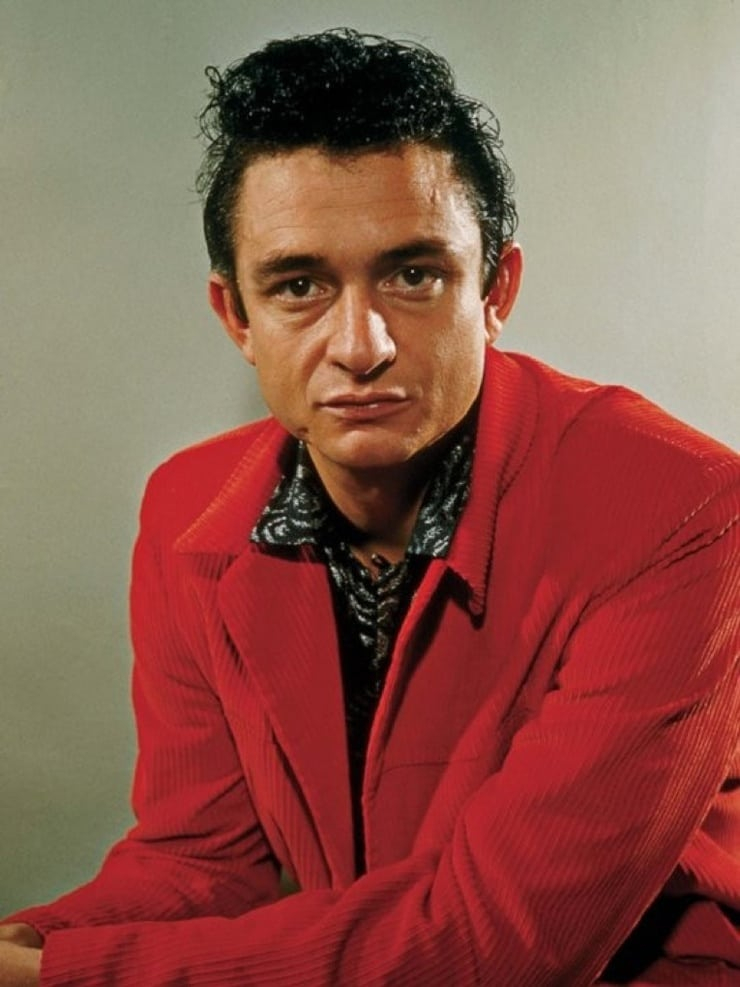
Photo: https://ilarge.lisimg.com/ 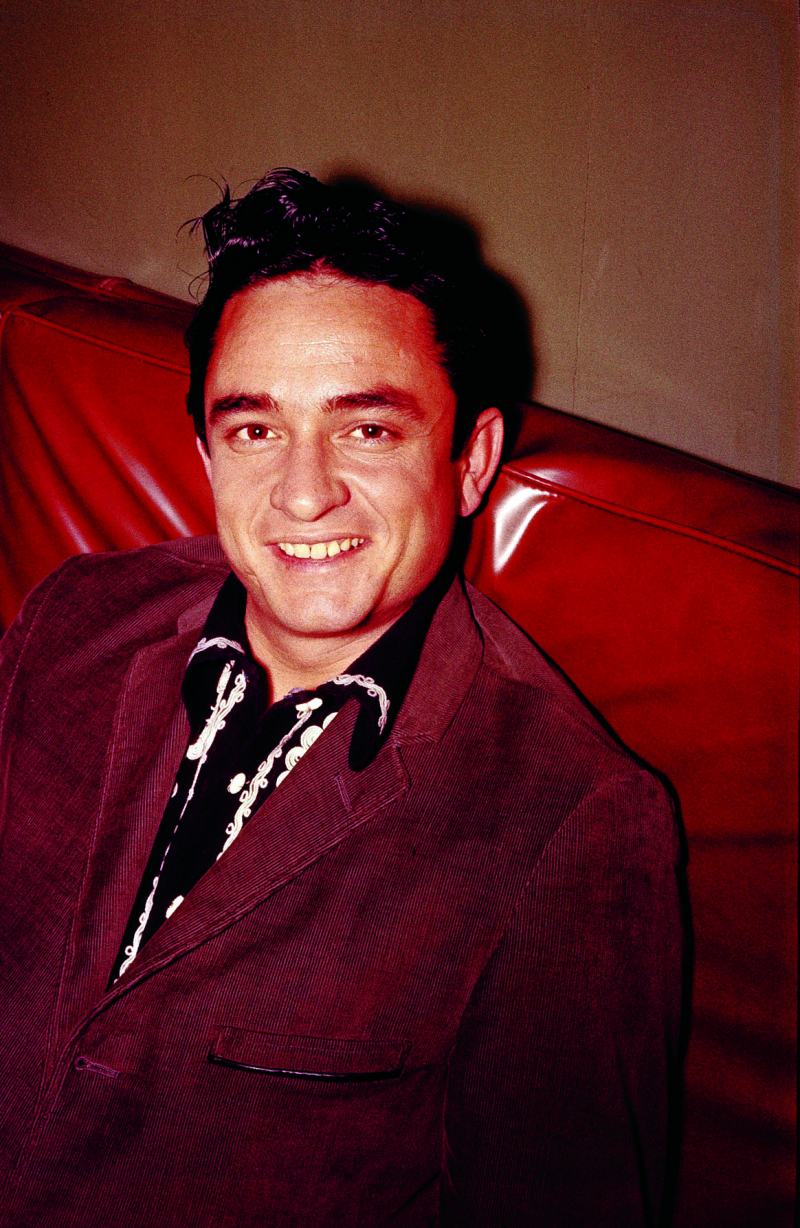
Photo: https://rubbercityreview.com/ -
Cash's multi-billion-dollar fame has made him famous for his "outlaw" image, particularly during the 1960s when he destroyed hotel rooms, drove a Jeep while high, and engaged in combat with the police. This period of his life came to a head when he was expelled from the Grand Ole Opry for disrespectfully and angrily dragging a microphone across the lampstands of the stage while performing at the "mother church" of country music. He then struck a power post with his automobile, shattering his nose and losing numerous teeth in the process. The main cause of Cash's outlandish behavior is drug usage.
Following her 1968 second marriage to June Carter of the illustrious Carter Family, Cash started to reflect on her life through the years and rededicate herself to her Christian origins. After two and a half years of study in the late 1970s, this came to a head, and he graduated with a theology degree and was ordained as a priest.
He was supported in his studies by Reverend Billy Graham, who during these years grew close to the Cash family. Cash presided over his daughter Karen's wedding even though he never tried to lead a congregation or act as a conductor for religious ceremonies. The most overt expression of the religious sentiment that pervaded most of his life was his becoming a pastor.
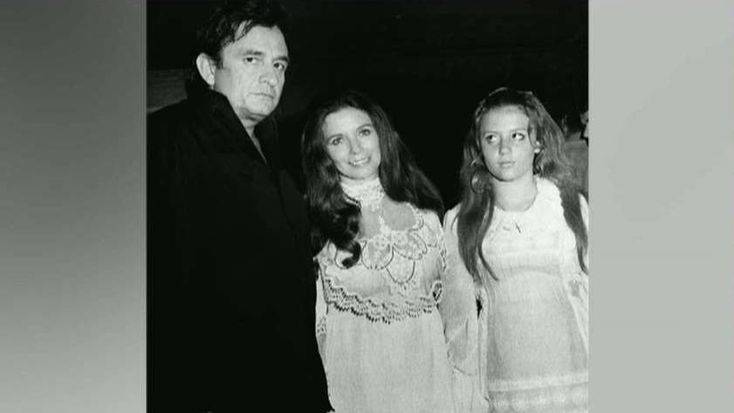
Photo: https://i.pinimg.com/ 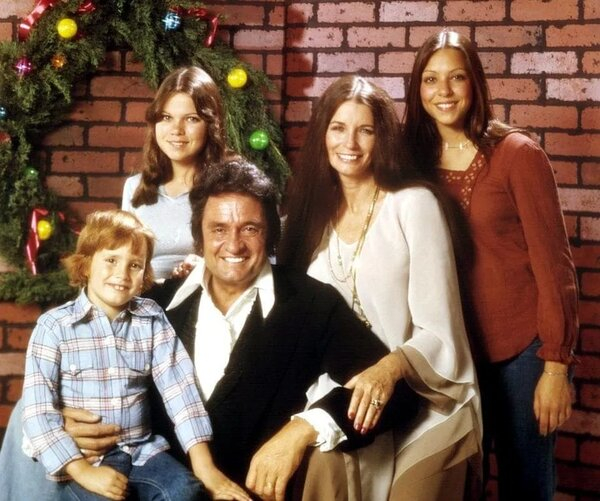
Photo: https://d3f88t1ya8f0ec.cloudfront.net/


























